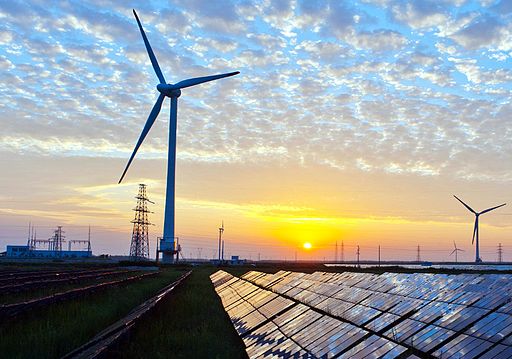A colleague at Radix frequently dismisses the Green Party as a single-issue party. On the other hand, a friend of mine did not vote for them because he found that most of their policies had nothing to do with the environment.
In the recent European elections, the Green Party beat the Tories, the French and German Green parties are coming third in elections – beating the old centre right/left parties or the much noisier right-wing parties. Their rise is likely to continue as most of their voters are young and environmental issues like climate change are becoming more rather than less pressing.
How do I reconcile the views of my colleague and my friend? The environment, or more pertinently sustainability, is not a single issue but an organising principle. Many years ago most countries were run under a religious settlement, they would think of themselves as a Christian or Muslim kingdom, with the monarch being the upholder of the faith.
The Soviet Union was notionally based around Marxist-Leninism, and our current settlement is described by its critics (inaccurately, but that’s another story) as neo-liberal. Green parties’ telos is to move towards a settlement based around sustainability – whether they have a coherent vision of this or a roadmap of how to get there is another matter.
Traditional green policies are based around environmental legislation – narrowly defined, or aiming to decarbonise our economy. The latest iteration is the Green New Deal which is a Keynesian stimulus package, where the stimulus is directed at green infrastructure; the aims being to boost the economy and employment whilst de-carbonising.
Economically this is a return to the post-war economic principles with an economy based on economic growth with demand managed by central government.
To achieve a truly sustainable economy would have to go way beyond these essentially marginal changes and would involve a total re-imagining of the economy. We would need to move to a circular economy which is a re-organisation of industry where the outputs (waste) become the inputs for production.
Modern industrial ideas such as the sharing economy, bio-mimicry and co-production would form integral parts of such a system. To achieve this would require a total transformation of the economy, companies would need to change their purpose, structure and operating principles. We would need to re-organise the financial system and move away from debt-based money.
As an example, a sustainable city would look totally unlike what a city currently looks like. For a start, it would have no cars and be covered in vegetation. It would have to have totally different transport and energy systems, planning and building codes would have to be transformed, as would the way we lived and worked.
Government would be both more localised and democratic; as well as having an increased emphasis on international co-operation to address global environmental problems and their impacts (such as the refugee crisis).
This would have to involve more co-operation and less competition, which would mean re-framing the way they interact. Government would focus on well-being rather than economic growth. There would be winners and losers but, in a truly sustainable settlement, people would have a better work-life balance, would be healthier and more equal.
A ‘green’ world would encompass every aspect of our lives; which is why a genuinely ‘Green’ party would have mostly non-environmental policies.
The transition to such a world would be painful. But at the moment the alternatives are the nasty nativism of the Tories/Brexit Party, which doesn’t seriously address any of the issues of today, and the nasty identity politics/socialism that is Corbynism, which is a failed model for addressing the problems of yesteryear, or there is neo-liberalism, the model that has brought us to the mess we are in.
Meanwhile, we are heading towards climate catastrophe, whilst we are fighting increasing fractious battles over total irrelevancies like Brexit. Maybe, in the words of that great champion of the green movement, Margaret Thatcher, There Is No Alternative.






Dear Nick, about this issue I recommend my book: “Environmental Politics”, Springer, New York-London 2015. in the book, I claim that a possible and still to be fully developed green platform (or even ideology) could substitute the obsolete libertarian vs. socialist dualism, now meaningless. The alternative is the current fight between the status quo (including Labor) and the neo-nationalist movements. They both represent the old politics founded on 20th-century models, ideologies and issues. I’ll try to re-launch your article one of these days. Thanks for the very good point developed
National sustainability, national sufficiency and national resilience are in my opinion key to securing a green future. Nations themselves must take responsibility for their ecological debt and their ecological means of survival.
Through a platform of national sufficiency, nations become cognisant of the balance between grey infrastructure and the built environment and the green infrastructure on which survival depends. This means mediating population concerns, mediating the capacity of the ecological and economic environments including public service provision and creating a national consciousness that mediates between the two.
The basis of this national settlement is ecologism, one in which the nonhuman is valued as highly as the human since it is the nonhuman world that provides the intrinsic basis of survival, not the processed man-made artifacts of industrialism which are secondary components of our well-being.
This means land is key to our future survival which in turn means the sustainable use of land so that ecosystem services and the biodiversity that intrinsically supports ecosystem services are a significant feature of planning principles, along with circular economic activity and an emphasis on non-material wellbeing such as deeper forms of political activities, culture, the arts and leisure.
In this respect, land should serve as a multifunctional basis of our well-being with land requisitioned and converted back to green as much as possible with as much human activities as possible taking place within green spaces. So rather than miles upon miles of grey, we have miles upon miles of green in which are located the secondary components of human survival.
Human survival must be built on quality of life rather than quantity of life and that journey must begin at the national with the required autonomy and independence to achieve and facilitate that.